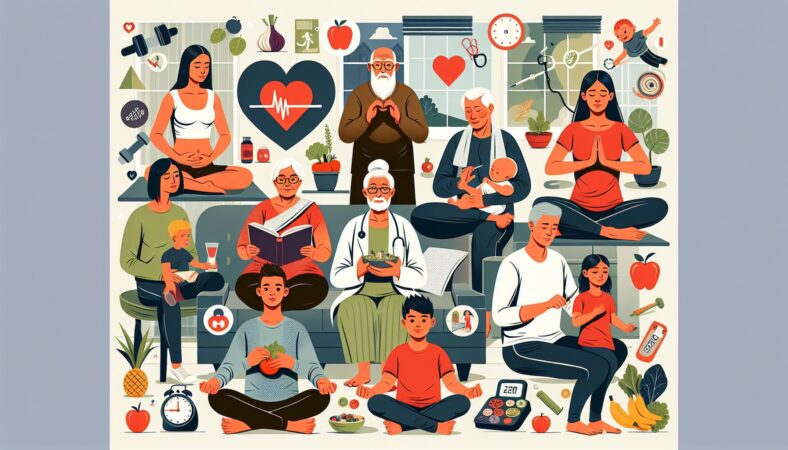Introduction
In today’s fast-paced and sometimes chaotic world, maintaining good health for ourselves and our families has become increasingly challenging. However, by embracing family healthcare and focusing on preventive measures, we can pave the way for a healthier and happier life. This blog post aims to explore the significance of family healthcare and specifically highlight the role it plays in cancer prevention. By implementing certain lifestyle changes and utilizing available healthcare resources, families can proactively work towards reducing the risk of cancer and other debilitating diseases.
The Importance of Family Healthcare
Family healthcare, sometimes referred to as primary care, involves the provision of comprehensive medical care to individuals of all ages within a family unit. It serves as the foundation for establishing and maintaining good health habits and ensuring the well-being of every family member. Adopting a family healthcare approach allows for early detection of medical issues, timely treatments, and the promotion of a balanced lifestyle. By prioritizing family healthcare, families can work together to prevent health problems, ultimately leading to a better quality of life for all.
The Role of Cancer Prevention
Cancer, a devastating disease affecting millions worldwide, has become alarmingly prevalent in recent years. While genetics can predispose certain individuals to cancer, studies have shown that adopting a healthy lifestyle significantly reduces the risk of developing various types of cancer. Family healthcare acts as a crucial tool in identifying risk factors, educating family members, and implementing preventive measures that can greatly reduce the chances of cancer onset.
Lifestyle Modifications for Cancer Prevention
When it comes to cancer prevention, certain lifestyle modifications hold immense significance. By incorporating these practices into your family’s daily routine, you can take significant strides towards safeguarding your family’s health and reducing the risk of cancer:
1. Embrace a Nutritious Diet
A well-balanced diet rich in fruits, vegetables, whole grains, and lean proteins acts as a pillar of good health. Encourage your family to consume a variety of colorful fruits and vegetables, as they contain essential vitamins, minerals, and antioxidants vital in fighting off cancer-causing agents.
2. Engage in Regular Physical Activity
Physical inactivity has been linked to an increased risk of cancer and other chronic diseases. Promote an active lifestyle for your family by engaging in regular exercise together. Encourage activities such as family walks, bike rides, or even engaging in sports as a unit. Aim for at least 150 minutes of moderate-intensity exercise each week to reap the full benefits.
3. Reduce Exposure to Harmful Substances
Limiting exposure to harmful substances plays a critical role in cancer prevention. Ensure your family avoids tobacco in all its forms and minimize or eliminate alcohol consumption. Additionally, be aware of environmental factors such as air pollution, which can contribute to the development of certain cancers. Creating a smoke-free, clean living environment goes a long way in protecting your family’s health.
4. Prioritize Routine Health Screenings
Regular check-ups, screenings, and immunizations are essential for the early detection and prevention of various diseases. Consult with your trusted family healthcare provider to establish an appropriate schedule for routine screenings based on your family’s health history and individual factors. By staying proactive and vigilant, you can catch any potential health concerns at their earliest stages.
Utilizing Available Healthcare Resources
In the pursuit of family healthcare and cancer prevention, families should harness the resources that healthcare systems offer. Consider the following strategies to optimize your family’s access to vital healthcare services:
1. Establish a Family Doctor- Patient Relationship
Having a dedicated family doctor or primary care physician offers multiple benefits. This healthcare professional becomes intimately familiar with your family’s medical history, allowing for continuity of care and personalized preventive measures. A family doctor can guide your family towards healthy lifestyle choices and provide tailored advice for cancer prevention specific to individual family members.
2. Leverage Preventive Services and Programs
Many healthcare systems offer preventive services and programs aimed at promoting family health and wellness. These may include vaccination clinics, cancer screenings, and educational initiatives. Stay informed about available resources and participate proactively to ensure your family receives the full benefits of preventive healthcare.
3. Stay Informed and Educate Your Family
Knowledge is a powerful tool in family healthcare. Familiarize yourself with the most recent research and recommendations on cancer prevention and overall well-being. Share this information with your family in an age-appropriate manner, emphasizing the importance of a healthy lifestyle and the significance of regular check-ups.
Conclusion
Family healthcare serves as a cornerstone for leading a healthier life and preventing diseases such as cancer. By adopting lifestyle modifications, accessing available healthcare resources, and embracing a proactive approach, families can navigate the challenges of today’s world more confidently. Remember, it is never too early or too late to prioritize the well-being of your family. Start today by taking a step towards understanding family healthcare and embark on a journey towards a healthier, more fulfilling future.
